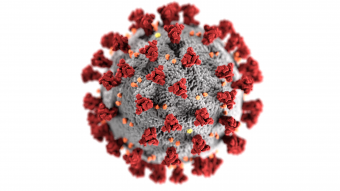
Sep. 28, 2020
Painting a clearer picture of COVID-19
MU researchers team up with eighth grader, MU undergrad to identify mutations in virus that may be causing its high infectivity.
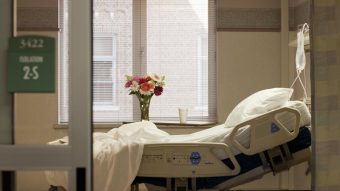
Sep. 25, 2020
Improving workflow in an intensive care unit
An engineering professor is investigating ways to help nurses spend more time with critically ill patients.
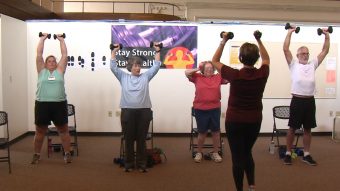
Sep. 23, 2020
Want a healthy independent lifestyle? There’s a class for that
MU Study shows 8-week training program helps promote healthy lifestyle for seniors.
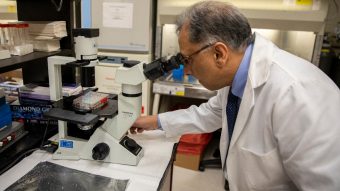
Sep. 23, 2020
Leading the way
MU researcher Salman Hyder has spent a career battling breast cancer and mentoring the next generation of researchers.

Sep. 22, 2020
Fostering ‘political’ attitude adjustments
MU study proposes narrative writing exercise as way to reduce polarization in U.S. politics.
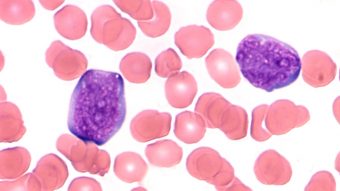
Sep. 17, 2020
School of Medicine team receives $1.7 million grant to study possible treatment for leukemia
Researchers are examining whether a drug used to treat Type 2 diabetes can prevent blood cancer from spreading.
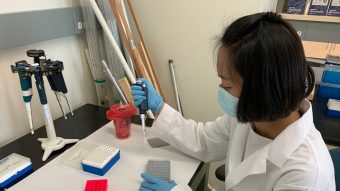
Sep. 10, 2020
A stinky job
MU scientists confirm human feces can provide an early warning of COVID-19 outbreak.

Sep. 2, 2020
Nature’s soundtrack returns after centurylong absence
MU researchers and partners reintroduce the brown-headed nuthatch to Missouri; The songbird disappeared from the state after the loss of its natural habitat.

Sep. 1, 2020
Having marriage doubts? Take a timeout
MU study suggests taking a pause on marriage procedures could be beneficial to those experiencing doubts.

Sep. 1, 2020
MU engineer uses machine learning to translate historical script
Researchers receive grant to devise a way to decipher and digitize 17th century records.